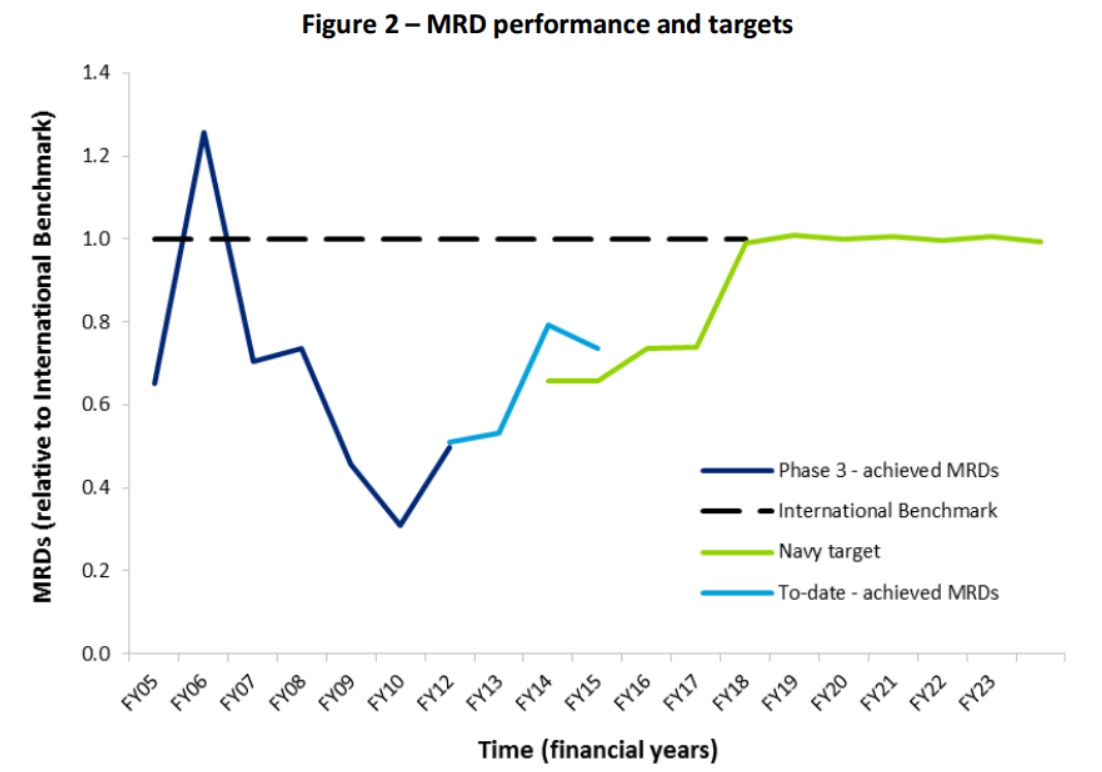Chief of Navy complained at the conference today the press loves to write about ‘dud subs’ but isn’t as keen on good news. And there’s some good news to report today, in the form of the latest instalment of the Coles review into the availability of the Collins class boats.
This is the latest in a series of reports, which have been tracking the progress of work to turn what was a moribund fleet into the military capability it was originally designed to be. We’ve been tracking progress here on The Strategist as well, from the dark days of poor management and outcomes through the noticeably better but still qualified performance noted in the previous report.
And the dark days were dark indeed—the new report reveals that Australia’s submarine capability basically collapsed in the second half of 2009. There were no days on which three boats were even in principle available for operations, and two boats were available less than 10% of the time. That compares to Navy’s targets of:
two deployable submarines consistently available, with four submarines available to the Fleet Commander and of these four, three submarines consistently available for tasking with one in shorter term maintenance and two submarines in long term maintenance and upgrade.
But that was then and this is now. The figure below shows the fleet availability through to the end of last year, compared to the international benchmark. (The absolute figure isn’t given, but our previous estimates were about 1,200 annual days from the fleet of six boats.) Clearly things are on the mend. Other stats in the report show that maintenance times are coming down, and defects are less frequent than before. We’re not up to the benchmark yet, but are well above the lowest point, and even ahead of where we hoped to be.
But, just as before, this good news comes with some qualifications. Some obsolescence issues are still to be addressed, and the Collins life extension program that we’re now committed to will need to address those. And there’s a message in here for government as it contemplates DMO’s workforce. A shortage of qualified engineers in that organisation is identified as a potential threat to further progress. Coles observes that DMO doesn’t have the flexibility to manage its workforce appropriately, which suggests that some targeted reforms, as well as apparently imminent cuts, are needed in the acquisition organisation.
Andrew Davies is senior analyst for defence capability and director of research at ASPI.


